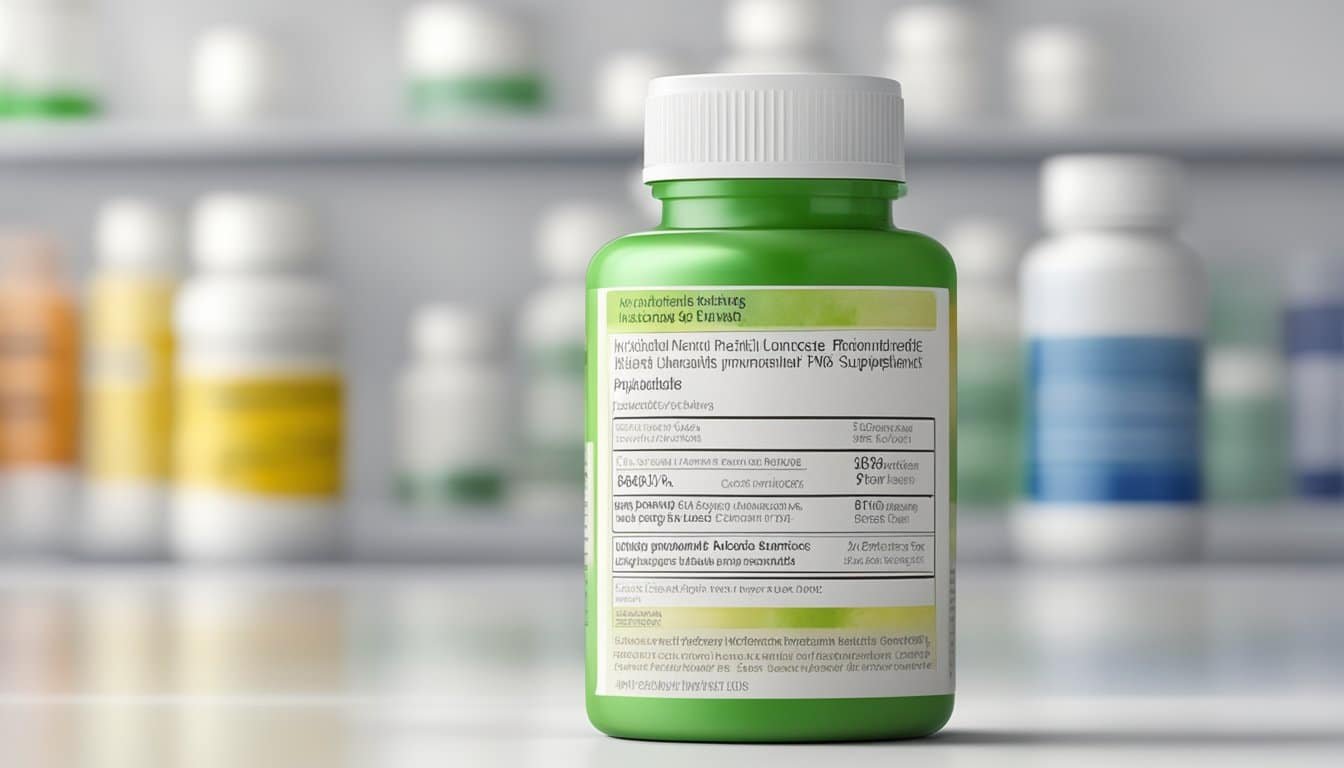Understanding Nicotinamide Riboside and NAD+
Nicotinamide riboside, or NR for short, is a form of vitamin B3 that has been catching the eye of many in the health community. It’s not the niacin or niacinamide people usually associate with vitamin B3; rather, it’s a lesser-known variant that has some unique properties.
Here’s the neat bit: NR is a precursor to nicotinamide adenine dinucleotide (NAD+), which means our bodies convert NR into NAD+. Now, NAD+ is a coenzyme that’s present in all living cells and is vital for energy production and regulation of key metabolic processes. Think of it as the unsung hero keeping cellular engines running smoothly.
Italicized Fun Fact: NR was once a wallflower at the B3 family dance, but now it’s leading the conga line in cutting-edge aging and health research.
As we age, NAD+ levels tend to drop, and this decline is linked to various age-related health issues. That’s where NR steps in. By increasing the body’s supply of NR through supplementation, it’s thought that we can give NAD+ levels a helpful nudge. There’s growing interest in NR as a potential boost for metabolism, brain health, and longevity.
And before you think it’s a magic pill, remember everything in moderation. NR supplementation has its limits and should not replace a balanced diet or healthy lifestyle.
Now, NR shouldn’t be confused with its cousin, nicotinamide mononucleotide (NMN), which also raises NAD+ levels. Both have their own paths and roles, but that’s a story for another day.
While the science behind NR and NAD+ continues to unravel, folks are intrigued by the potential of this power couple in the world of wellness. For those wanting to dive deeper into this fascinating topic, articles discussing nicotinamide riboside’s therapeutic possibilities and its ability to elevate NAD+ in healthy adults provide some great insights.
Health Benefits and Potential Effects

Nicotinamide riboside (NR) supplements have sparked considerable interest for their potential in combating age-associated conditions and supporting various aspects of physiological health. They are being researched for their role in metabolism enhancement, neuroprotection, and cardiovascular health improvement.
Anti-Aging and Mitochondrial Function
Nicotinamide riboside shows promise in the promotion of healthy aging. It has been linked to the activation of sirtuins, a family of proteins that are crucial for mitochondrial function and DNA repair, both of which are vital in the aging process. Animal research indicates that NR might mimic the effects of calorie restriction, a known longevity enhancer, without the need to reduce caloric intake.
Metabolic and Cardiovascular Health
For metabolic and cardiovascular health, NR supplementation could be a game-changer. It has been associated with improved control over metabolism and blood pressure, which are key factors in managing diabetes and reducing the risk of heart disease. In middle-aged and older adults, who are at increased risk of metabolic disorders and cardiovascular disease, NR has been shown to alleviate aortic stiffness, an indicator of arterial health.
Cognitive Health and Neuroprotection
When it comes to the brain, NR might exhibit neuroprotective effects. There’s growing interest in its potential to preserve cognitive health and possibly defend against neurodegenerative conditions like Alzheimer’s disease and Parkinson’s disease. Observations suggest NR could support the maintenance of healthy brain cells, possibly aiding in the prevention of cognitive decline and conditions like dementia.
Safety, Dosage, and Side Effects

Navigating through the world of supplements, especially with Nicotinamide Riboside (NR), requires an understanding of safety protocols, dosing recommendations, and potential side effects. This section carves out guidelines to maximize benefits and minimize risks with NR supplementation.
Proper Usage and Dosage Guidelines
When it comes to taking NR supplements, the question of “how much?” is crucial. Clinical trials suggest that doses up to a certain level are safe and do not significantly affect markers like systolic blood pressure. A typical dosage might be in capsule or tablet form, often ranging from 250 to 300 mg per day. For those incorporating Niagen, a patented form of NR, sticking to the dosage guidelines stated on the packaging is advisable.
- Daily NR intake: 250-300 mg
- Supplement form: Capsule or tablet
Recognizing and Managing Side Effects
While NR is generally well-tolerated, some individuals might experience side effects like nausea, fatigue, or diarrhea. It’s fascinating to note that features like increased bioavailability can potentially influence side effect profiles. If one is pairing NR with compounds such as pterostilbene or resveratrol, keeping an eye on bodily responses is wise to manage any adverse reactions.
- Common side effects: Nausea, fatigue, diarrhea
- Take with food: May reduce nausea
Interactions and Precautions
NR supplementation calls for caution, especially for those who are pregnant, breastfeeding, or managing chronic conditions. There’s a lack of substantial data on NR’s safety in these populations, so consulting healthcare experts before adding NR to the routine is a smart move. Furthermore, it’s essential to consider NR’s interactions with other supplements and medications. NR may not mix well with certain compounds, so thorough research is always a step in the right direction.
- Consult healthcare provider: If pregnant, breastfeeding, or with chronic conditions
- Dietary sources of NR: Limited, hence the need for supplements
Remember, when it comes to adding any supplement to one’s diet, it’s about being informed, staying safe, and listening to one’s body. With NR, as with any other dietary supplement, balance and moderation are key.

